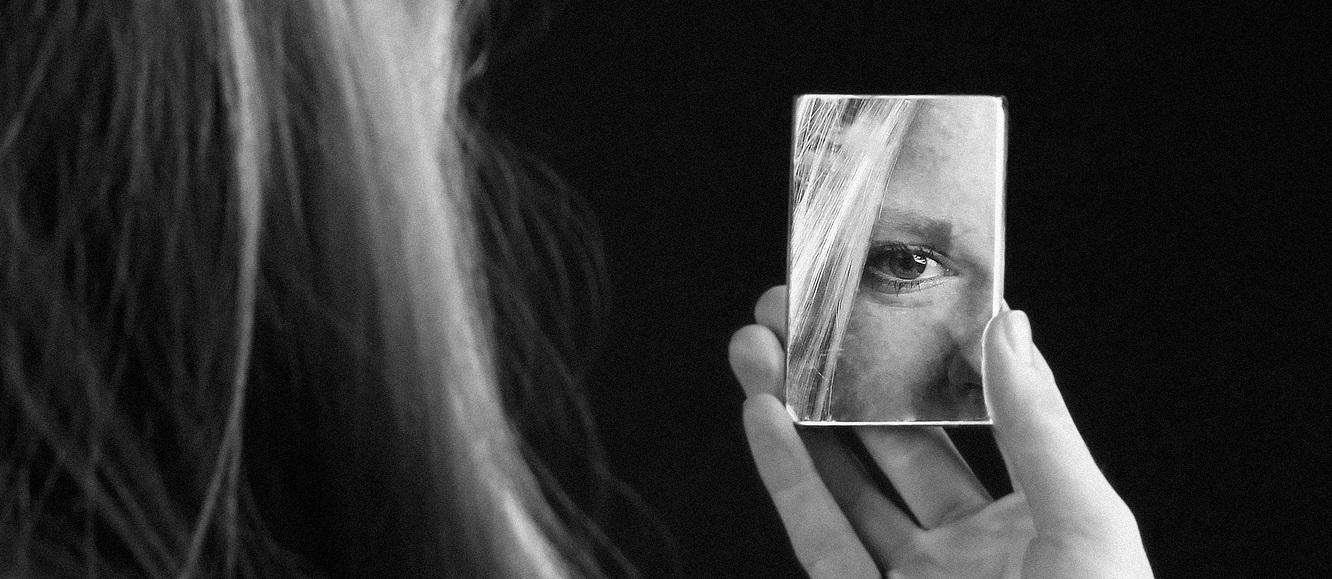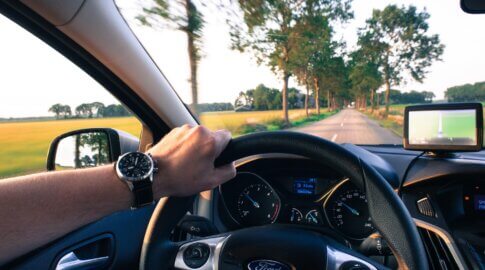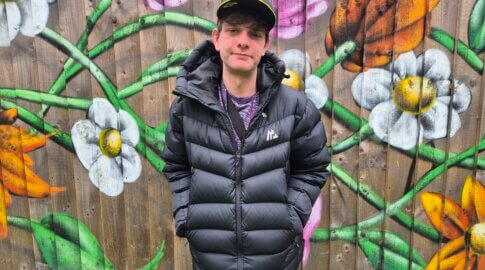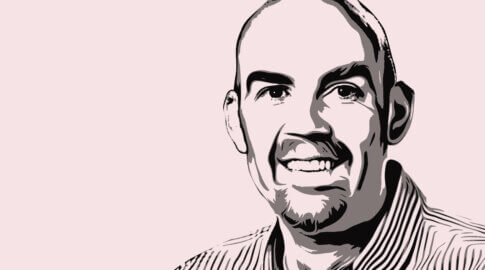Self-image and identity with PH
Psychotherapist Sophie Papageorgis lives with pulmonary hypertension and is passionate about helping others with the condition. Here, she explores why we worry so much about how others perceive us – and how we can change the way we see ourselves.
The other day I was scrolling through the PHA UK Facebook group, and I saw a post from someone worrying about what people would think if they were to use a mobility scooter.
I noticed how much sadness filled me in that moment. To need a mobility scooter is a big deal. Most people take walking for granted; from about the age of one, they learn it, everyone cheers, and on they go for the majority of their lives. For those of us with chronic illnesses like PH, it can be a bit different. We face things daily that most people won’t have to consider, which is good because we wouldn’t wish it on them!
The fact that we must make these considerations to live our lives, the fact that we can’t always go for walks whenever we fancy, the fact we have to consider our energy levels… What is it then that makes us then worry about what others might think?
I remember going to a zoo years ago and asking for a mobility scooter, which was met with laughter by the person on the desk. I then produced my disabled badge, and they looked absolutely mortified (though not as mortified as I felt asking for the help!)
I have to say, my friend and I had the time of our lives zooming round that zoo on the mobility scooter. But as I type this, 12 years later, the main memory I have is the reaction of that staff member.
When we live with PH, we live with something which is ever-present. Physically, it makes us breathless, gives us headaches, fatigue, and low oxygen levels – to name just a few symptoms. It changes the colour of our lips, nails, and skin. We might need IV therapy and have to adjust to life with a Hickman line. We might need to use wheelchairs and mobility scooters, avoid events with walking, avoid stairs, standing for long periods, and hot/cold weather – all these things become daily considerations.
Emotionally, we might get anxious, scared, depressed or worried, or withdraw yet feel lonely and desperate for company. We may be unsure how to cope. And if you’re anything like me, you are probably doing all you can to make sure that everyone around you doesn’t get impacted by all this going on inside!
But why do we do this? We live with limitations, and I know if my friends did, I would do anything I could to make things easier for them. I would never want them to have to hide things from me.
In my work as a psychotherapist, my clients share so many brave and difficult things that often come with so much shame, and I find myself wondering what that shame is about. Horrible things that they’ve dealt with, that are out of their control, that they had to battle through. Things most people wouldn’t understand or need to manage.
I know that what I see in my client work can be a bit of everyday life with PH – trying to cope with something so out of our control, that impacts our self-esteem and self-identity so much. But we can’t control that. Life is precious, so why do we want to waste any time worrying what others think about our conditions when we’re the ones living with them!
The strongest people are the ones who know hardship, and still go on. The people who might have judgements cast their way, but from people who don’t understand the daily battle.
This might seem like an odd quote in a PH article, but as the famous basketball coach John Wooden said: “Never let the things you cannot do prevent you from doing the things you can”.
Ok, we may not be able to run marathons or walk very far, and we may curse the person who invented the staircase – but there are a whole lot of amazing things that each and every one of us can do! And if we were all the same, life would be very boring.
It’s hard not to let our chronic illness identify us but I truly believe it is just a part of us. For me, it’s a part that I often rage against, wish I didn’t have, get grumpy with, love, appreciate, and know it has shaped who I am, and given me the empathy I need to do my job (and probably a bit of PTSD too).
The beauty of being human is that we can have all these different emotions and feelings, which are all valid and okay. PH is not who we are. It’s part of us, and we may all feel differently towards it, and it might change day-to-day, moment-by-moment. Some of us might work full-time, some part-time, some not at all. Some of us may live with partners, live alone, with parents, with children, with carers.
Some of us may be able to do moderate exercise, some lots, some not at all. Some of us may take tablets, some need injections, some may be on IV therapy and have a Hickman Line.
Some might have anxiety, some may be in denial, some may feel down, some may have mood swings, and some may be happy.
All of these are normal! Because we, like the rest of the world, are all individual and all human. From what I’ve seen, the one thing all phighters have in common is the strength and courage to live with it. And that, by far, is how I like to identify; strong and courageous.
As the author Hannah Brencher says: “Maybe life isn’t about avoiding the bruises. Maybe it’s about collecting the scars to prove that we showed up for it”.
Our bodies are amazing. When you look in the mirror, try to focus on all that it’s been through, all that it deals with, and how impressive it really is with all that’s thrown at it. See how it feels to offer yourself a bit of compassion.
















